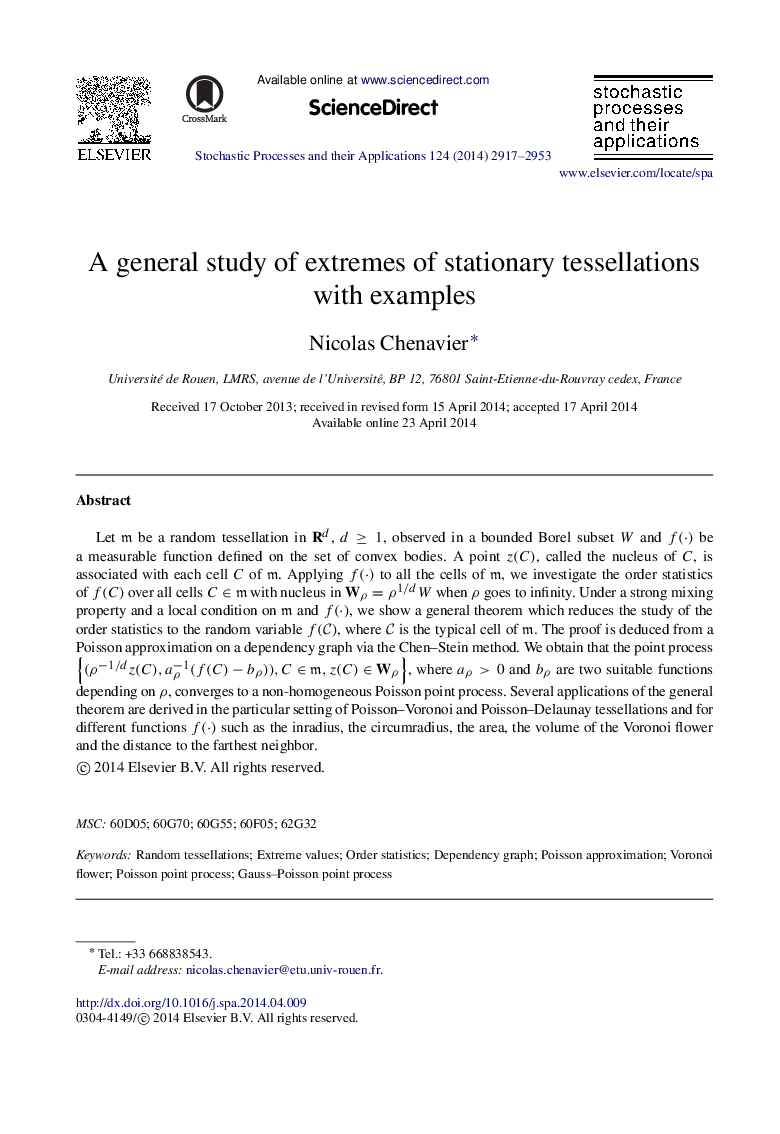| Article ID | Journal | Published Year | Pages | File Type |
|---|---|---|---|---|
| 10527361 | Stochastic Processes and their Applications | 2014 | 37 Pages |
Abstract
Let m be a random tessellation in Rd, dâ¥1, observed in a bounded Borel subset W and f(â
) be a measurable function defined on the set of convex bodies. A point z(C), called the nucleus of C, is associated with each cell C of m. Applying f(â
) to all the cells of m, we investigate the order statistics of f(C) over all cells Câm with nucleus in WÏ=Ï1/dW when Ï goes to infinity. Under a strong mixing property and a local condition on m and f(â
), we show a general theorem which reduces the study of the order statistics to the random variable f(C), where C is the typical cell of m. The proof is deduced from a Poisson approximation on a dependency graph via the Chen-Stein method. We obtain that the point process {(Ïâ1/dz(C),aÏâ1(f(C)âbÏ)),Câm,z(C)âWÏ}, where aÏ>0 and bÏ are two suitable functions depending on Ï, converges to a non-homogeneous Poisson point process. Several applications of the general theorem are derived in the particular setting of Poisson-Voronoi and Poisson-Delaunay tessellations and for different functions f(â
) such as the inradius, the circumradius, the area, the volume of the Voronoi flower and the distance to the farthest neighbor.
Keywords
Related Topics
Physical Sciences and Engineering
Mathematics
Mathematics (General)
Authors
Nicolas Chenavier,
